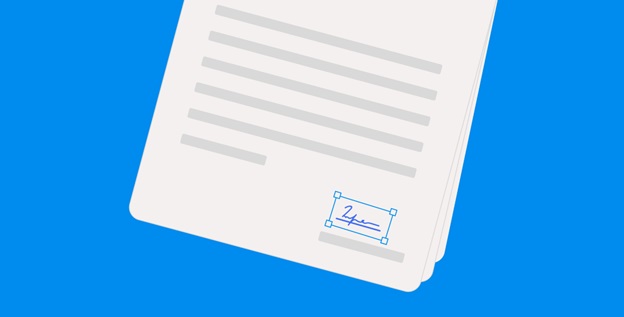In today’s fast-paced digital world, efficiency and security are paramount when it comes to managing documents and signing agreements. Traditional paper-based signatures no longer cut it, especially in the tech industry, where speed and data protection are critical. Enter eSignature makers, the innovative tools that are revolutionizing how tech companies handle documents.
In this article, we’ll explore the evolution of eSignatures, their benefits, key features, case studies, challenges, and future trends, all centered around the transformative power of eSignature makers.
The Evolution of eSignatures
To appreciate the impact of eSignature makers in tech, it’s essential to understand the historical context of signatures and document authentication. For centuries, handwritten signatures were the standard way to verify the authenticity of documents. However, in our increasingly digital world, traditional signatures have become cumbersome, slow, and less secure.
The emergence of electronic signatures, or eSignatures, marked a significant shift. eSignatures are digital versions of handwritten signatures and can be applied to electronic documents. The adoption of eSignatures in the tech industry has been driven by the need for speed, efficiency, and security.
Over time, eSignature technology has evolved, leading to the development of eSignature makers. These tools provide a streamlined and efficient way to create, send, and manage electronic signatures, making them ideal for tech companies.
Benefits of eSignature Makers
eSignature makers offer a range of benefits that make them indispensable in the tech industry. Here are the key advantages:
1. Enhanced Efficiency
eSignature makers streamline the document signing process, eliminating the need for physical paperwork and manual tasks. Tech professionals can sign documents and contracts with just a few clicks, drastically reducing the time required for signatures.
Imagine a scenario where a tech company needs to onboard a new client. With eSignature makers, the entire process can be handled digitally. Contracts and agreements can be sent electronically, signed quickly, and stored in a secure digital format. This efficiency accelerates business processes and minimizes delays.
2. Heightened Security
Security is a top concern in the tech industry, especially when handling sensitive information and contracts. eSignature makers incorporate robust security measures to protect digital signatures and documents.
One of the primary security features is encryption. When documents are signed electronically, they are encrypted to prevent unauthorized access and tampering. Additionally, eSignature makers often include authentication measures to verify the identity of signatories, ensuring that only authorized individuals can sign documents.
Compliance with legal and industry regulations is another critical aspect of security. eSignature makers help tech companies adhere to these regulations, reducing the risk of legal complications.
Key Features and Technologies
eSignature makers utilize various technologies and features to provide efficient and secure document signing solutions:
1. Digital Signature vs. Electronic Signature
It’s essential to distinguish between digital signatures and electronic signatures. While both are used for online document authentication, they serve different purposes.
- Electronic Signatures (eSignatures): These are digital representations of handwritten signatures. eSignatures are commonly used for various documents, from sales contracts to employee onboarding forms. They are legally binding in many jurisdictions and are suitable for most business needs.
- Digital Signatures: Digital signatures go a step further in terms of security. They are based on cryptographic technology and provide an added layer of authentication and data integrity. Digital signatures are often used for highly sensitive documents and are considered more secure than standard eSignatures.
eSignature makers typically support both eSignatures and digital signatures, allowing tech companies to choose the level of security that suits their specific needs.
2. Cloud-Based eSignature Platforms
Many eSignature makers are cloud-based, meaning users can access them from anywhere with an internet connection. This flexibility is especially valuable in the tech industry, where remote work and collaboration are common.
Cloud-based eSignature platforms also offer automatic updates and scalability, ensuring that tech companies always have access to the latest features and can adapt to changing business needs.
3. Integration with Other Tech Tools
eSignature makers often integrate seamlessly with other tech tools that tech companies use daily. This includes Customer Relationship Management (CRM) software, document management systems, and project management tools. Integration simplifies the document signing process, making it more efficient and reducing the need for manual data entry.
Challenges and Considerations
While eSignature makers offer numerous advantages, there are also challenges and considerations to keep in mind:
1. Security Concerns and Data Breaches
Tech companies deal with sensitive data, and any breach can have severe consequences. It’s crucial to select eSignature makers with robust security features, including encryption, access controls, and audit trails. Regular security audits and updates are essential to stay ahead of evolving threats.
2. Legal and Regulatory Compliance
Different countries and industries have varying legal requirements for electronic signatures. Tech companies must ensure that their chosen eSignature maker complies with these regulations. This may involve research, legal consultation, and using eSignature tools that offer compliance features.
3. User Adoption and Training
Implementing eSignature makers requires user adoption within the organization. Tech companies should provide adequate employee training to ensure the new tools are used effectively. User-friendly interfaces and clear documentation can facilitate the transition.
Future Trends and Innovations
The eSignature landscape is continuously evolving, and tech companies should stay informed about future trends and innovations:
1. Integration with Emerging Technologies
eSignature makers are likely to integrate with emerging technologies, such as blockchain. Blockchain can enhance the security and immutability of digital signatures, making them even more reliable for tech companies.
2. Impact on Remote Work and Digital Transformation
The rise of remote work has accelerated the adoption of eSignature makers. As tech companies continue to embrace digital transformation, eSignature solutions will play a pivotal role in facilitating remote collaboration and document management.
Conclusion
eSignature makers have become indispensable tools in the tech industry, enhancing efficiency and security in document handling. From streamlining business processes to bolstering data protection, these tools offer a range of benefits.
However, tech companies must also address security concerns, navigate legal compliance, and ensure user adoption to make the most of eSignature technology. As the tech industry continues to evolve, eSignature makers will play a vital role in shaping the future of document management and authentication. Embrace the future today by exploring the transformative power of eSignature makers in tech.
Among the myriad eSignature maker tools available, Signeasy is a reliable and user-friendly choice. With its intuitive interface, robust security features, and seamless integration capabilities, Signeasy empowers tech companies to streamline document workflows, enhance security, and embrace the future of digital document management.
Don’t miss the opportunity to experience the efficiency and security unleashed by Signeasy. Try it for free today and embark on a journey towards a paperless and more productive future. Your tech company’s success story awaits one electronic signature at a time.





